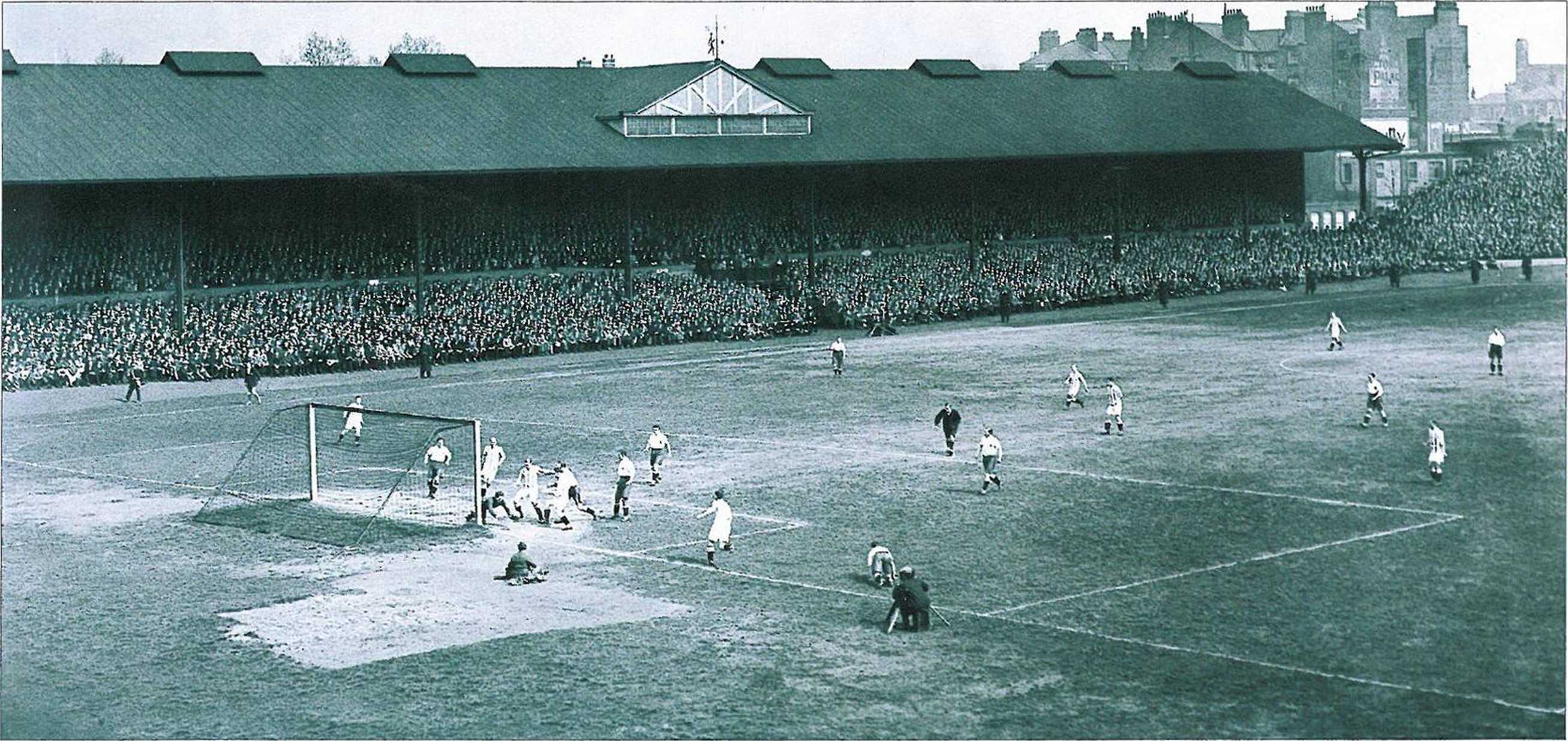Huddersfield apart, no club enjoyed a sustained period of success in the 1920s. West Bromwich Albion won the first postwar championship, 1919-20, for the only time in their history. Long before the decade was out the Midlands club was languishing in the Second Division. Burnley had finished runners-up to West Brom, and they took over the mantle in 1920-21. A 30-match unbeaten run - 21 wins and 9 draws - between early September and late March carried the Lancashire club to its first tide. But once again decline quickly set in. After six seasons'ni'the bottom half of the table Burnley finally suffered the drop in 1929-30.
Scott marshals mean Liverpool defence
Liverpool were the only club apart from Huddersfield to win two championships in this period. The team’s success was built on a resilient defence, with the huge Irish goalkeeper Ehsha Scott performing heroics and estabhshing himself as an Anfield legend. In 1921-22 Liverpool found the net just 63 times. Six teams had bettered that but none could match the 36 in the Goals Against column. The following year Liverpool held off the challenge of a skilful Sunderland side to retain their crown, and this time their defence was even more impenetrable: only 31 goals conceded in their 42 games, a new record. Liverpool didn’t suffer the same fate as West Bromwich Albion and Burnley thereafter, but their form for the rest of the 1920s was erratic and they didn’t mount another serious title challenge.
Gallacher becomes toast of Tyneside
Huddersfield then took charge, and their vice-like grip on the league was not broken until Newcasde claimed their 4th title in 1926-27. Their star was diminutive Scottish striker Hughie Gallacher, widely regarded as the greatest finisher of his era. Gallacher, who had joined Newcastle from Airdrie for ?5500, hit 36 of the team’s 96 league goals. Having missed four matches, this very nearly gave him a scoring ratio of a goal a game.

A panoramic photograph of the last Cup Final at Stamford Bridge before the move to Wembley. Smithes winning penalty kick for Huddersfield was the first to decide a Cup Final. Preston’s goalkeeper, James Mitchell, had tried to distract Smith as he prepared to take the kick by moving about on the goal line. Following this incident, the rule was brought in which required the goalkeeper to remain still until the ball was kicked.




 World History
World History









